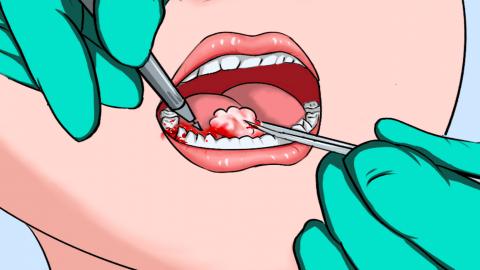What are the precautions and contraindications for tooth extraction?
Generally, proper post-operative care and individual health considerations are important after tooth extraction. Precautions typically include biting down on a gauze pad to stop bleeding, avoiding immediate eating, preventing wound infection, refraining from strenuous activities, and monitoring for bleeding. Contraindications generally include acute inflammatory phases, severe cardiovascular diseases, coagulation disorders, active malignant tumors, and specific stages of pregnancy. If any abnormalities occur, prompt medical consultation is recommended. Detailed explanations are as follows:

I. Precautions
1. Biting on the hemostatic cotton roll: After tooth extraction, bite firmly on a sterile cotton roll for 30 to 40 minutes to apply pressure and promote blood clot formation. Do not spit it out or replace it prematurely.
2. Avoid immediate eating: Refrain from eating for at least 2 hours after the procedure. After that, consume lukewarm liquid or soft foods, and avoid chewing on the side of the extraction to prevent irritation to the wound.
3. Prevent wound infection: Do not brush your teeth or rinse your mouth within the first 24 hours. Avoid sucking on the extraction site to prevent bacterial invasion and potential infection. Take anti-inflammatory medication as prescribed if necessary.
4. Avoid strenuous exercise: Avoid vigorous activities such as running or jumping for 1–2 days after surgery to reduce blood circulation speed and prevent dislodging of the blood clot, which could lead to renewed bleeding.
5. Monitor bleeding: If bleeding persists beyond 24 hours or increases progressively, contact your dentist immediately. Do not attempt to manage excessive bleeding by yourself.
II. Contraindications
1. Acute inflammatory phase: If there is an active infection such as acute gingivitis, periodontitis, or pericoronitis (e.g., impacted wisdom tooth infection), tooth extraction may cause the infection to spread. Extraction should be postponed until the inflammation is under control.
2. Severe cardiovascular disease: Patients with uncontrolled hypertension, angina pectoris, or history of myocardial infarction are at increased risk of sudden blood pressure elevation or arrhythmia during extraction.
3. Coagulation disorders: Patients with hemophilia, leukemia, or other conditions affecting blood clotting are prone to prolonged or uncontrollable bleeding after extraction due to impaired clotting mechanisms.
4. Active malignant tumor: For patients with oral or maxillofacial malignancies, tooth extraction may increase the risk of tumor cell dissemination. A specialized oncology evaluation is required before proceeding.
5. Specific stages of pregnancy: Tooth extraction during the first and third trimesters increases the risk of miscarriage or preterm labor and should generally be avoided unless absolutely necessary.
Prior to extraction, patients should fully disclose their medical history and current medications to the dentist for risk assessment. Strict adherence to post-operative care instructions and maintaining good oral hygiene are essential. Seek immediate medical attention if severe pain, swelling, or fever develops after the procedure.








